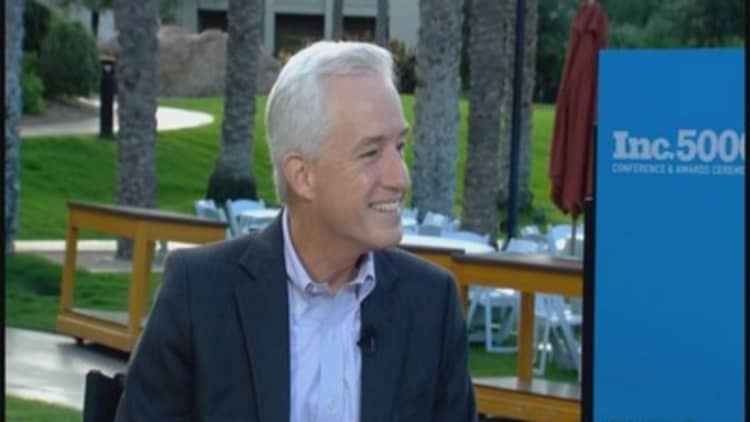Although renters and travelers have been using Airbnb in San Francisco for more than six years, the start-up moved closer toward legitimacy in the city where the company was founded.
The city's board of supervisors on Tuesday approved the "Airbnb law." The legislation now needs a signature from Mayor Ed Lee, who has 10 days to sign, and the law would take effect in February 2015.
The legislation will allow property owners to legally offer their homes as short-term rentals. The growing online Airbnb community has been a boon for travelers, seeking affordable options, and disrupted the hotel and travel industry. Those currently renting properties using Airbnb technically are breaking local rules.
One of the biggest changes after the law's passage will be taxes—and a new source of revenue for the city.
Airbnb will be subject to hotel taxes, which are at 14.5 percent in the city, according to Board of Supervisors President David Chiu. He estimates San Francisco will bring in between $12 million and $15 million in the first year, thanks to the city's 14.5 percent hotel tax.
Read More'Bad karma' for a raise? How to fix the women in tech problem
The new regulations also will require Airbnb, and other home-sharing hosts, only offer short-term rentals of no more than 90 days. The legislation will also include the creation of a city registry for those renting out their homes. Renters also will get $500,000 in liability insurance per listing.
After two years of tweaks, Chiu of the board of supervisors said he's happy with the outcome of the legislation he spearheaded. This despite critics who say it will only worsen the affordable housing crisis San Francisco faces.
In an op-ed to the San Francisco Chronicle, Sen. Dianne Feinstein, D-Calif., called on Mayor Lee to veto the bill, and protect the residential nature of the city. "Those of us who value the residential character of our neighborhoods and are invested in the city's quality of life will see all of this washed away by a blanket commercialization of our neighborhoods," she said in the article.
But board president Chiu argues the bill keeps short-term rentals in check. "The new law will make it 1,000 percent clear that if you are a landlord evicting tenants to create a year-round hotel, or a tenant using multiple units, you will get hit with fines of thousands of dollars per day, and potential criminal charges," he said.
According to the bill, all hosts have to abide by rent control laws, and renters will not be allowed to engage in short-term rentals for vacation homes or second homes. In order to rent, you must be a primary resident in the home you are sharing, and you have to live in the home more than nine months of the year, Chiu said.
In a blog post, Airbnb said the San Francisco legislation will "give regular people the right to share the home in which they live, and make it fair to share in San Francisco. This vote is a great victory for San Franciscans who want to share their home and the city they love."
There are between 5,000 and 6,000 rentals nightly in the city via multiple home-sharing services including Airbnb, Chiu says.
In June this year, Portland also moved to legalize short-term rentals, though the guidelines are less comprehensive.

The San Francisco bill, and movement in Portland, are part of a larger evolution of the sharing economy.
Sometimes called collaborative consumption, consumers dip into buying and selling goods and services that traditionally have been relegated to professionals. Strapped for cash after the recession, homeowners and drivers have been renting homes or driving passengers.
Read More Lower oil, energy prices bring relief for businesses
"Politically, other cities will be pushed to do what San Francisco did, because more people will want to rent out their houses and cars," said Aswath Damodaran, professor of finance at NYU Stern School of Business.
Ultimately, new rules imposed on upstarts could even the playing field and encourage innovation and competition among start-ups and established businesses.
"The field becomes more even, between Airbnb and the hotel establishment, but the advantage goes to those who are more flexible," Damodaran said.
As for which cities are next to approve regulations, Damodaran says he thinks Los Angeles is next in line.
"What happened in San Francisco will happen around the country," he said. "I think Los Angeles is a next natural fit instead of New York, because people in L.A. are more likely to own their homes or apartments."





